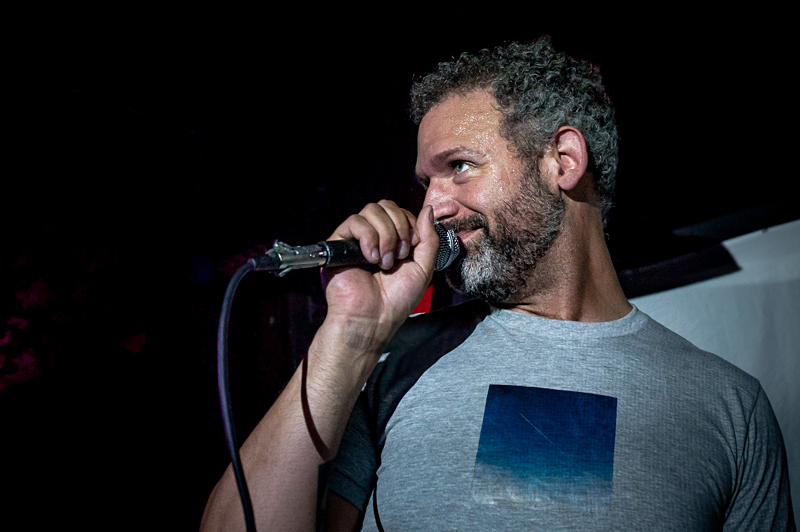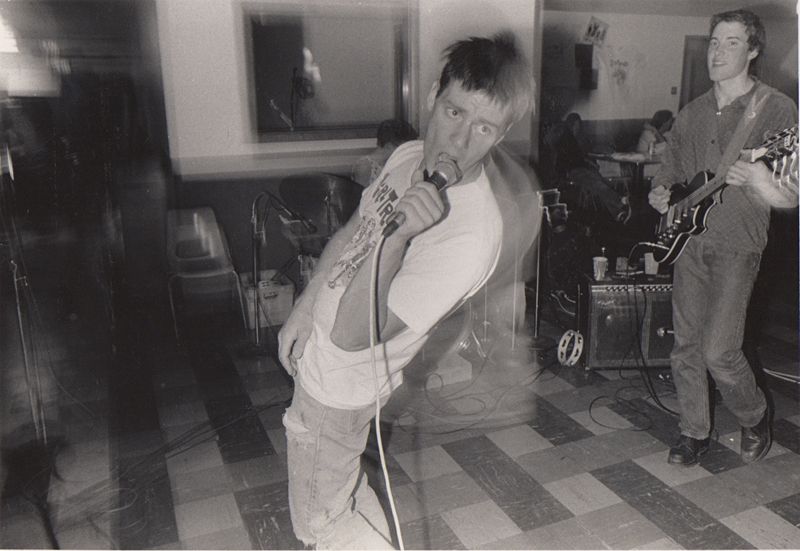If you think the most outrageous rock star journal comes from a guy from Aberdeen, think again: Next year Fourth Estate is scheduled to publish Marianne Faithfull’s diaries. If that book is anything like a conversation with Faithfull—or her dishy 1994 autobiography Faithfull— expect a ripping read.
At 56, Faithfull has lived a life in the headlines. Known first as Mick Jagger’s girlfriend in swinging ’60s London, she was either bedded or chased by Keith Richards, Jimi Hendrix, Bob Dylan, and countless others. The ’70s saw her turn into “Sister Morphine” as she briefly descended into junkie hell. Through it all, music kept her sane, giving her teen pop fame with 1964’s “As Tears Go By,” and offering her a second act with 1979’s Broken English, the kind of artistic resurrection that few musicians ever accomplish.
Though her sensationalistic past is easy fodder for a chat, Faithfull chooses not to live there. “The past doesn’t weigh on me anymore,” she says. “It binds other people up, but it doesn’t bind me. Perhaps people find that very irritating, but it doesn’t bother me. That’s one of the reasons I like working with younger people: They come without preconceptions and baggage.”
On her latest album, Kissin’ Time, Faithfull teams up with several of the “young people” she jokingly refers to as “the boys”: Blur, Pulp, Beck, Billy Corgan, and Dave Stewart. The result is a surprising record that showcases her beautifully aged voice paired with a host of unexpected collaborators. Most of her cohorts have been friends for years, but Faithfull says she was conscious of trying to break expectations and to create songs that were spontaneous: “I wanted us to create a new thing together, completely different from what they, or I, did before.”
Faithfull achieves that with the first tune, “Sex With Strangers,” wherein she gets Beck to sound like some sort of Dionysian god. In fact, there’s so much sex on the album Faithfull considered the opener as the record’s title track, to sum up its ribald nature. “Sex is definitely something you get better at the more you do it,” Faithfull says with the voice of experience. “You get more comfortable with your sexuality as you get older—I can tell you that. One day that awful sort of shame one feels when one is young and sexual goes away.”
Though the album has several songs that contribute to its “parental advisory” sticker, it also explores themes of innocence and playfulness. Faithfull admits she couldn’t have made Kissin’ Time without first having written her autobiography—something that helped her shed many of the old ghosts. “It was really good for me to get that all out there, which is probably why I was able to do Kissin’ Time,” she says. “I had to write the book to put down the weight of that part of my life. I don’t feel like that person anymore; I don’t feel like that creature.”
As one of the centerpieces of swinging London, she was indeed a “creature” of sorts, sought after by paparazzi and appearing almost daily in the papers. As Jagger’s paramour and a fixture in the Stones camp, she saw jealousy of almost-unprecedented proportions from female fans. At 18, “As Tears Go By” made her an international sensation in her own right, while starring roles in films such as 1968’s The Motorcycle Girl helped her gain big-screen fame. The only way she managed to survive the dizzying pace was by developing a persona to escape her reality. “That may sound pretty ruthless, but it’s true,” she says. Though still a portrait of beauty and elegance, she jokes that when she looks at pictures of her younger self, only now does she understand why she was so sought after: “God, I must have been a stunner,” she laughs.
Asked if she has any regrets, Faithfull claims there are none, but quickly revises that answer to include two men who were near-miss lovers: Jimi Hendrix and Bob Dylan. Both pursued her while she was involved with Jagger, and she turned both superstars down, citing her commitment to Mick. “The only great regret I have, is that I didn’t just get up and say, ‘OK, Jimi, let’s go.’ It really is a shame. I was too sensitive and too conscious. I just couldn’t do it.”
A little later in the conversation, she adds another regret that’s not so easy to laugh about: “And, of course, I wish I’d never taken heroin. It seems to me now, looking back on it, from a long way in time, that it was just a waste of my time.” At one point, Faithfull became a drug buddy of Harry Nilsson’s, one of many lost souls from an era of excess. “I miss them all,” she says, sounding sad for the first time all afternoon. “But when people come to see me play, I’m channeling all of that, too: It’s all in me. It’s like when in a family, your parents die, part of them lives on inside you. I knew Keith Moon, Harry, and Hendrix, and you can understand part of them from the way I am.”
But even Kissin’ Time, her best album in a decade, isn’t enough to make Faithfull rest on her laurels for long. She’s already begun work on her next record, which will include songs she’s been writing with Polly Jean Harvey. “It isn’t the most upbeat stuff, as you can imagine,” she says. “But it is very good, although very different from the last album.”
Few musicians have had as many storied chapters to their career as Marianne Faithfull, and she says she’s not about to stop anytime soon.
“You don’t look right; you don’t look left,” she finally announces, perhaps hinting at the secret to her survival. “You just keep moving.”









